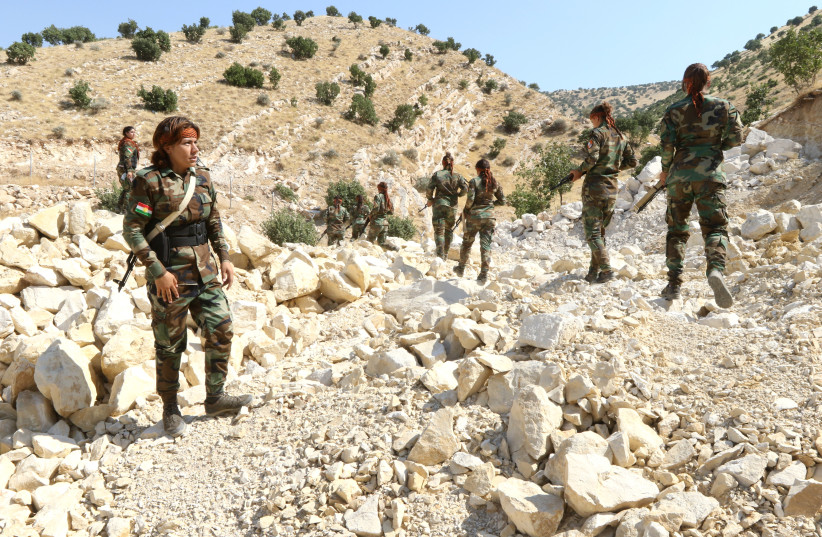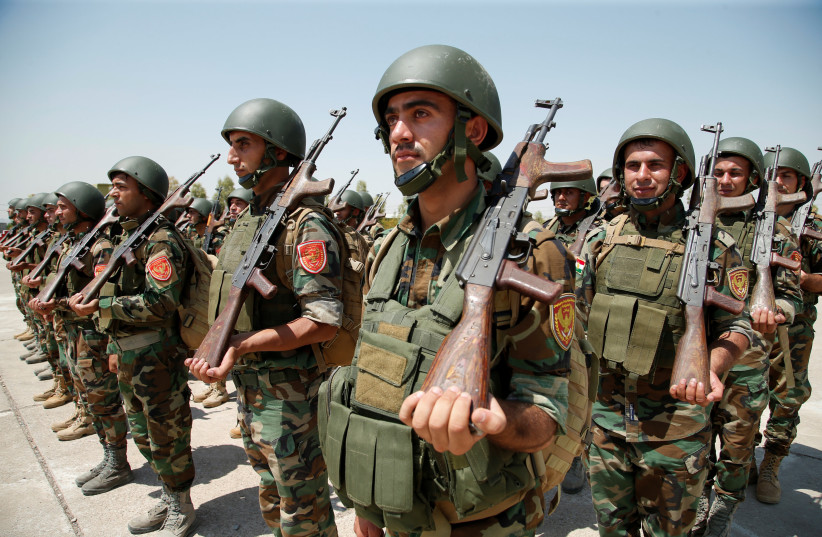Prime Minister of the autonomous Kurdistan Regional Government Masrour Barzani visited an area near the frontline against ISIS to meet with a family that lost three sons to an ISIS attack last week. The tragedy is the latest to befall the Kurdish region. The region is also helping repatriate thousands of stranded Kurds who ended up in Belarus, dying in the freezing cold trying to reach Europe. It also comes after Kurdish families died in the English Channel, another brutal tragedy that has seen families mourn daughters and sons.
The Peshmerga are the Kurdish defense forces of the autonomous region. They have been fighting ISIS for seven years and lost thousands of fighters along a frontline that once stretched almost 1,000 kilometers. Today ISIS is largely defeated but it is still a danger. One area where it is particularly pernicious is in an area that stretches south of Mosul below a ridge called Qarachokh mountain. The ISIS members exploit gaps in control that exist between the Peshmerga and Iraqi federal forces and Iranian-backed militias in this area.
To understand how this works, one must understand that back in September, 2017, the Kurdish region had an independence referendum. The people overwhelmingly backed independence, but the government of Iraq was led by the western-backed Haider Abadi. He conspired with Iran’s Qasem Soleimani and Shi’ite militia leader Abu Mahdi al-Muhandis to retake Kirkuk from the Kurds. In October, 2017, this plan was set in motion, apparently with approval of the Trump administration who preferred a strong Abadi and believed he needed a “win” over the Kurds, even though the Kurds were closer to the US as partners. October ended in the conquest of Kirkuk by federal forces and Iranian-backed militias. Around two years later, those militias would end up attacking US forces and the US, also under Trump, ordered an airstrike to kill Soleimani and Muhandis as they met near Baghdad airport.
The Kurdish region has had difficulties securing areas between its areas of control and the Iraqi forces. This isn’t helped by the fact the Iranian-backed militias infiltrated Nineveh plains around Mosul and have fired rockets at Erbil, the capital of the Kurdistan region. US-led Coalition members used to help coordinate between both sides, between large Iraqi infantry divisions and the Peshmerga. The Security Force Assistance Brigade teams and other methods were supposed to help units based near Qarachokh, like at the Black Tiger Camp, to stop ISIS threats.

For instance, in the fall of 2020, Sirwan Barzani, commander of the area wrote that he “welcomed Col. Samuel, Commander of French Forces in Iraq and Kurdistan, to Black Tiger Camp. We discussed the latest security situation of the area. We also talked about our commitment to face terrorism and the cooperation between Coalition Forces, Iraqi Army, and Peshmerga.”



